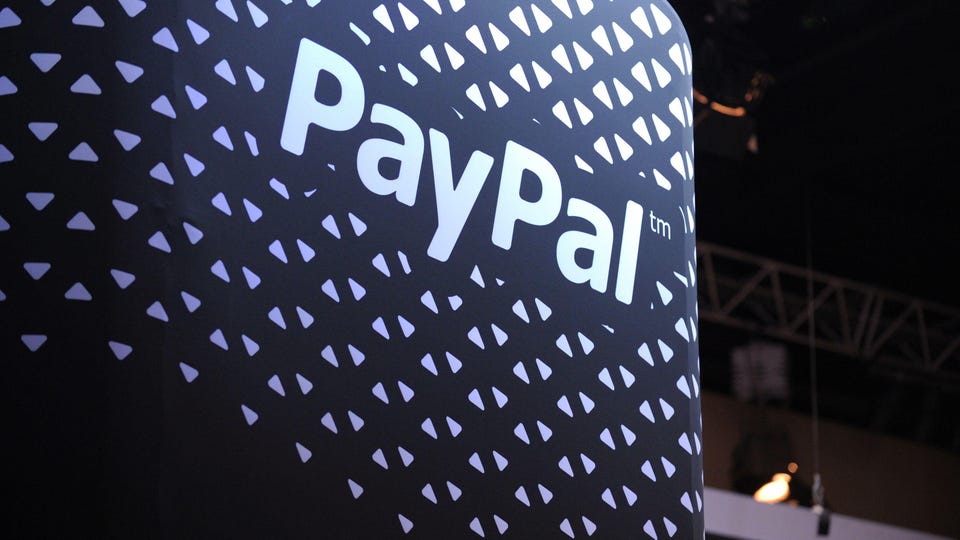Policy Transparency For Payment Processors Mark MacCarthy Contributor Washington Bytes Contributor Group Opinions expressed by Forbes Contributors are their own. Oct 18, 2022, 11:08am EDT | Share to Facebook Share to Twitter Share to Linkedin Recently, PayPal released an update to its terms of service that said it would fine people using its service for spreading disinformation. It faced an immediate free speech backlash on social media.
Former PayPal President David Marcus tweeted this policy was against everything the company believed. He seemed to think it was “insanity” for payment companies to refuse service “if you say something they disagree with. ” Elon Musk tweeted his agreement.
The company quickly reversed itself, saying the release was a mistake. But the controversy led libertarian lawyer Eugene Volokh to look more carefully at PayPal’s terms of service and he was horrified to discover that PayPal has a long-standing acceptable use policy that forbids “the promotion of racial intolerance or other forms of discriminatory intolerance. ” As a good First Amendment lawyer he pointed out that “sharply criticizing a religion or government officials could be construed as the promotion of hate—and could theoretically violate that policy.
” To protect himself from this danger and to protest this form of censorship he closed his PayPal account and urged others to do the same. Good luck finding an alternative. The reality is that payment companies have always had acceptable use policies, and for good reason.
For one thing, they have legal responsibilities to stop money laundering and terrorist financing. So, they have to know who their customers are and what they are spending their money on. They also have a specific legal obligation to block unlawful internet gambling transactions.
Payment companies also have policies against the use of their systems for illegal transactions and most of them take special precautions against copyright violations and child porn. Beyond these legal issues, payments systems restrict who they do business with for ethical and brand reasons. Amex doesn’t allow its services to be used by pornographers, even though pornography is protected by the First Amendment.
Neither do Stripe, Amazon Pay, or Square. Visa and Mastercard allow their member banks to provide service to legal pornography merchants, but they also allow the banks to refuse this business and many of them do. This tolerance has its limits, however.
The payment networks recently cut ties with Pornhub after revelations that it didn’t do much to control depictions of rape on its site. Both payment systems have broad brand protection clauses in their contracts with merchants and banks. They can withdraw service from “brand-damaging” transactions and reserve the right to unilaterally define what those transactions are.
MORE FOR YOU Livestream Shopping Stays Hot As Whatnot Valuation More Than Doubles To $3. 7 Billion Housing Market Recession: Home Builders Warn Collapse Is ‘Unsustainable’—And Prices Could Tumble Another 20% Sky Stream Puck Goes On Sale – And Sky Glass Gets A Major Picture Quality Boost Some of these payment company restrictions seem idiosyncratic, to say the least. Amazon Pay, for instance, won’t pay for “occult services.
” So, witches and warlocks stay away! But many of them seem right. In particular, the bans on hate speech that mimic PayPal’s. Amazon Pay prohibits “hate literature.
” Square rejects “hate or harmful products. ” Swipe bans a company or individual “that engages in, encourages, promotes or celebrates unlawful violence toward any group based on race, religion, disability, gender, sexual orientation, national origin, or any other immutable characteristic. ” Visa and MasterCard could ban such merchants under their brand-protection programs, even without an explicit prohibition.
What reputable business would want to be associated with companies or groups promoting hate speech? Responsible payment card companies flee contact with such people and they are right to do so. Of course, enforcement can often be controversial. In 2019 PayPal applied its policy against hate speech to Gab and Infowars, which brought cries of censorship from conservative activists.
But displeasing some critics comes with the territory. Controversies over standards enforcement are an inevitable part of being in the payment business. I talked about these issues with former general counsel for the National Security Agency and current partner at Steptoe & Johnson LLP Stewart Baker on his October 17 Cyberlaw podcast (around 32:40).
He’s more suspicious of payment card hate speech standards than I am but we agree that a good step forward would be transparency. Payment card companies should be required to disclose their standards, explain their disconnection decisions, and provide adequate opportunities for challenging them. Laws providing for this kind of transparency for social media companies are already on the books in some U.
S. states and in Europe. Existing financial regulations should be supplemented to require similar transparency rules for payment card companies, to be enforced by the powerful regulators that already supervise financial institutions.
Transparency has another advantage. It can reveal behind-the-scenes government pressure on card companies to withhold service. This apparently happened in December 2010 when Wikileaks began to release the contents of confidential diplomatic cables.
Senator Joe Lieberman, then-Chair of the Senate Homeland Security Committee, publicly called for card companies to disconnect Wikileaks. But PayPal said that it received secret pressure from the State Department. Visa, MasterCard, and PayPal soon suspended Wikileaks’ accounts.
Government agencies should not exert shadowy pressure on payment companies to disconnect disfavored companies and groups. A little sunlight on such hidden agency nudges would be a good disinfectant and transparency requirements would provide it. Follow me on Twitter or LinkedIn .
Mark MacCarthy Editorial Standards Print Reprints & Permissions.
From: forbes
URL: https://www.forbes.com/sites/washingtonbytes/2022/10/18/transparency-for-payment-processors/
